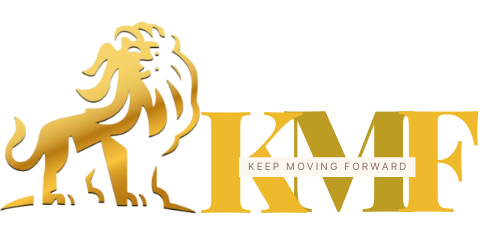- 9825 Marina Blvd #100, Boca Raton, FL 33428
- 561-609-7325
Follow Us :

John C Bucher
August 29, 2024

When it comes to finding the right broker to sell your business it can be a process if you know what to look for. This will help you navigate through the brokers available. Find the one that suits your specific requirements the best.
Here are some key qualities of a business broker;
Becoming a business broker is not something you can learn in a classroom. It’s, about having hands-on experience in the field. When considering hiring a business broker one of the things to assess is their level of experience, in selling businesses. In the world of business brokerage, there is a saying; “Every deal faces challenges times before reaching completion.” An experienced broker knows how to overcome obstacles and bring deals back on track when they seem at risk of falling! The closed deals they have under their belt the better equipped they’ll be to shepherd your deal towards successful closure as well.
While experience is crucial, staying updated on marketing strategies is equally vital. Ultimately brokers need to attract buyers for your business.
If a broker is unable to utilize the range of marketing platforms available today your business could receive fewer offers potentially leading to a lower sales price. That’s why it’s crucial to ensure that the broker you choose is leveraging cutting-edge marketing channels. If a broker lacks a website, social media presence and robust online profile you might want to reconsider their ability to market your business effectively.
A broker who claims they can handle every aspect of taking your business from listing to closing on their own should raise flags. The ideal broker, for you is someone with connections to lawyers, accountants and other professionals. A good broker isn’t hesitant to tap into this network for support when. Moreover having a network of connections indicates that the broker has experience in the field.
Honesty is key when it comes to pricing and can be an obstacle in selling a company. Unfortunately, many brokers struggle with being forthright, about their clients’ company values.
Often of speaking their thoughts brokers tend to say what they believe the clients want to hear. This approach can lead to delays in finalizing a sale because the company may end up being valued. A reliable broker, on the other hand, will be honest with you after evaluating your company’s worth even if the information isn’t what you were hoping for.
When meeting with a business broker it’s advisable to request a look at their website and brochure. The website should be crafted organized visually appealing and user-friendly. Moreover, the brochure should offer insights into the broker and their affiliated organization. A high-quality website and professional brochure demonstrate how dedicated the broker is to their work and indicate whether they possess the capabilities needed to attract buyers for your business.
Before engaging a broker’s services it’s crucial to inquire about their membership in associations and verify if they hold a state license for marketing businesses. Membership, in national associations, highlights a broker’s dedication as maintaining affiliations demands both time and financial commitment. Additionally, association memberships provide brokers with networks that can facilitate swifter sales transactions.
There are tasks that a broker fulfils as soon as you bring them on board. These responsibilities are crucial, in ensuring the sale of your business at a price.
The broker kicks off by strategizing for the sale of your company from the moment they come on board. Strategic planning is key to enhancing the value of your business, which involves organizing your statements and all relevant financial paperwork. They help optimize your business’s finances by identifying cost-saving measures and revenue-boosting strategies ultimately increasing the attractiveness of your selling price. Moreover, the broker aids in preparing your business for a transition guiding training staff to maintain continuity post-sale.
The broker must evaluate the value of your business. Determining the value is essential for setting an asking price that aligns with market standards. A price set high may deter buyers whereas a low asking price could mean leaving money on the table. With their expertise, an experienced broker can avoid these pitfalls. Help you maximize returns, from selling your business.
The broker assists in compiling all paperwork to present an overview of your business.
They gather this information into an Information Memorandum (IM) and a Confidential Business Review (CBR) or Confidential Business Summary (CBS) depending on the nature and intricacy of the business. These documents are crucial, during discussions with buyers needing accuracy and adherence to standards.
Identifying buyers can pose a challenge when attempting to sell your business. However professional brokers make this task easier by tapping into their database developed through years of experience. This enables them to reach out to individuals who could express interest in acquiring your business.
Effectively marketing a business calls for expertise and knowledge. A reputable broker possesses the skills to devise and implement marketing strategies designed to attract buyers without disclosing your company’s identity. They understand the marketing channels, for your specific business type and utilize a mix of advertisements, brochures, social media platforms and other communication methods to connect with potential buyers.
Although every inquiry may appear promising as a buyer screening each one individually can be time intensive. A proficient broker employs tactics to assess the capabilities of buyers before proceeding further.
This process helps distinguish buyers from browsers ensuring that your business’s private information remains secure.
When a potential buyer has gone through the Information Memorandum and shows interest, in moving the broker will collaborate with you to negotiate a purchase agreement. This stage involves working with your team while maintaining confidentiality for details.
Upon signing a purchase agreement the buyer may ask for full disclosure to examine any information initially kept confidential due to commercial sensitivity. This due diligence phase can vary from 5 to 90 days depending on the complexity of the business.
Once all conditions for the sale and purchase of the business have been satisfied the conditions removal document will be signed. At this point, you will be required to set up an escrow account. The escrow serves as an entity to oversee the transfer of funds and essential documents between the buyer and seller.
As a seller, your involvement does not cease once you engage a broker. You must be available for meetings, and aid, in document preparation. Be prepared to make decisions.
Being actively engaged helps things run smoothly and keeps the sales momentum going.
It’s crucial to understand how fees work. Brokers typically charge a commission usually ranging from 8 to 12% of the sale price, which is paid when the sale closes. Some brokers may also have fees, for marketing or paperwork services so it’s essential to clarify these details upfront.
Maintaining the confidentiality of your business information is vital during the selling process. A reliable broker will use NDAs and discreet marketing tactics to safeguard your business’s identity and confidential data.
Selling a business poses its set of challenges. Deals can fall through negotiations can be. Finding the buyer may take time. However, an experienced broker will assist you in overcoming these obstacles and staying focused on your goal.
Following the sale you might need to stay involved temporarily to aid in the transition process. This could entail training the owner or ensuring continuity in operations. Additionally, you might be requested to sign a complete agreement to prevent launching a similar business in the same area, for a specific period.
KMF Buisness Advisors
Copyright © 2024 All rights reserved.